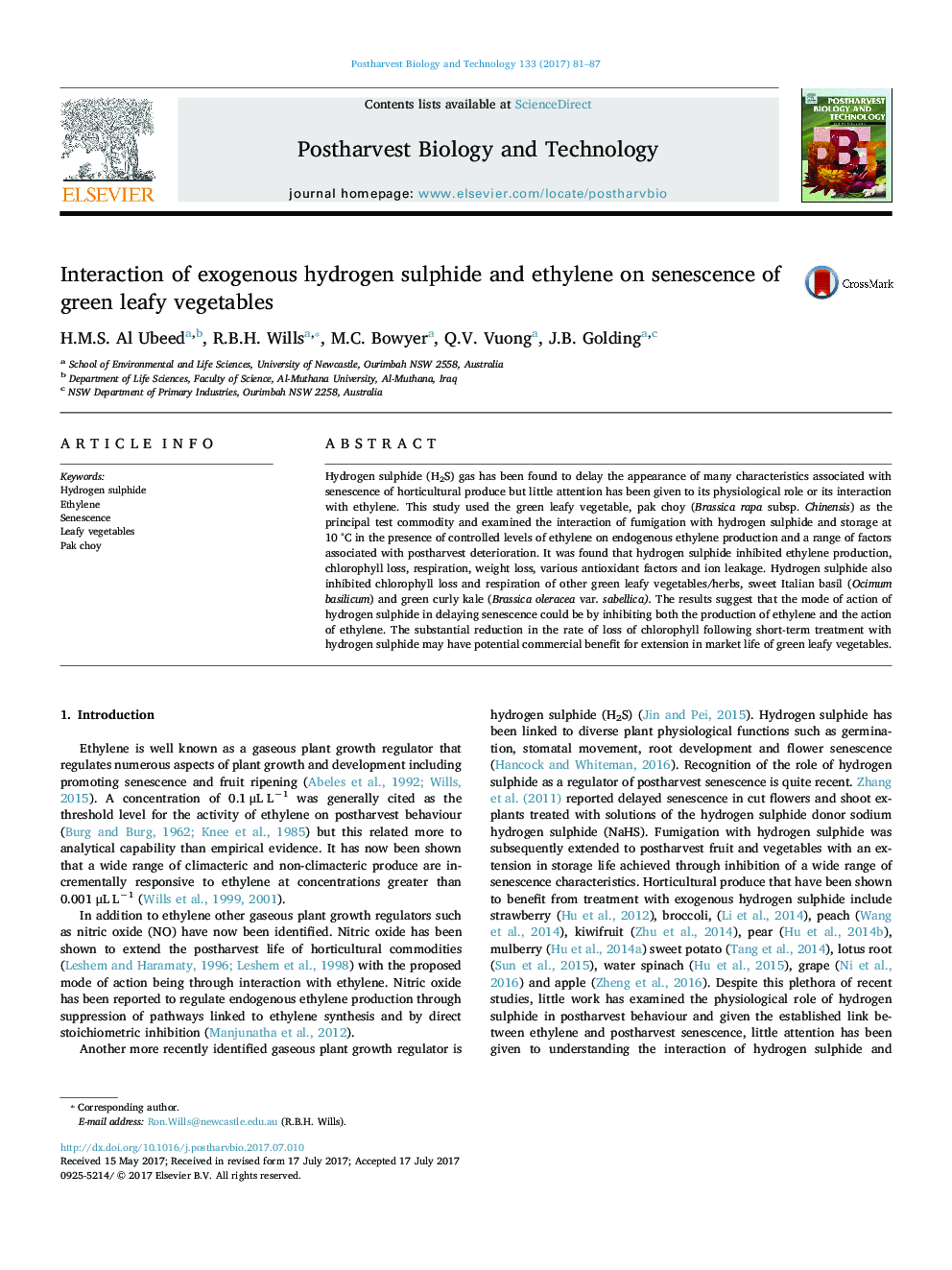| Article ID | Journal | Published Year | Pages | File Type |
|---|---|---|---|---|
| 5762652 | Postharvest Biology and Technology | 2017 | 7 Pages |
Abstract
Hydrogen sulphide (H2S) gas has been found to delay the appearance of many characteristics associated with senescence of horticultural produce but little attention has been given to its physiological role or its interaction with ethylene. This study used the green leafy vegetable, pak choy (Brassica rapa subsp. Chinensis) as the principal test commodity and examined the interaction of fumigation with hydrogen sulphide and storage at 10 °C in the presence of controlled levels of ethylene on endogenous ethylene production and a range of factors associated with postharvest deterioration. It was found that hydrogen sulphide inhibited ethylene production, chlorophyll loss, respiration, weight loss, various antioxidant factors and ion leakage. Hydrogen sulphide also inhibited chlorophyll loss and respiration of other green leafy vegetables/herbs, sweet Italian basil (Ocimum basilicum) and green curly kale (Brassica oleracea var. sabellica). The results suggest that the mode of action of hydrogen sulphide in delaying senescence could be by inhibiting both the production of ethylene and the action of ethylene. The substantial reduction in the rate of loss of chlorophyll following short-term treatment with hydrogen sulphide may have potential commercial benefit for extension in market life of green leafy vegetables.
Related Topics
Life Sciences
Agricultural and Biological Sciences
Agronomy and Crop Science
Authors
H.M.S. Al Ubeed, R.B.H. Wills, M.C. Bowyer, Q.V. Vuong, J.B. Golding,
